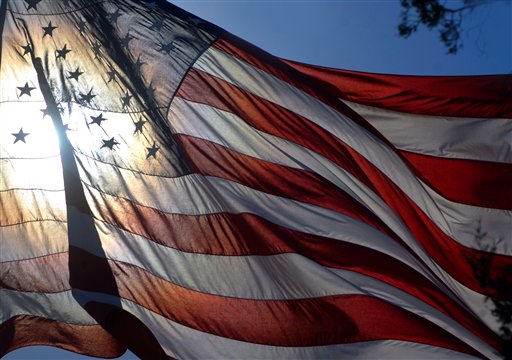ATLANTA (AP) — Last Memorial Day, Ronald Dolly spent the long weekend in Miami Beach with two friends. This year, the destination is the same, but the quarters are closer: 11 people, two cars, one hotel room.
“There are a lot of us, so it will be a lot cheaper,” Dolly, a student from the Atlanta area who studies health care management, said Friday. He figured the trip would work out to an average of less than $40 per person.
Welcome to another scaled-back summer of travel. More people will hit the road than did last year, but their budgets will be even tighter than in 2009, thanks to persistently high unemployment, stock markets in retreat and the fragile economy.
Auto club AAA says about 32.1 million Americans will travel over the Memorial Day holiday weekend, roughly 5 percent more than last year. Families will spend an average of $809, or $67 less than a year ago.
They’re knocking down the cost, travel agents say, by staying closer to home, choosing less-expensive modes of transportation or by picking destinations based on the best fares and lodging they can find.
In summers past, Dennis Chang and his family visited Disney World or Jamaica. But this year, with his wife recently out of work, the 33-year-old clothing designer from Laurel, Md., says the family is scaling back.
The more likely destination for this summer is Virginia Beach, Va., a four-hour drive away, with sandwiches in the car and hunting for discounted tickets to theme parks along the route.
Debbie Dixson, an airline bag checker from St. Louis, can get cheap tickets to New York or Paris through her job. But the cost of food, lodging and entertainment in a big city would quickly wipe out whatever she saved. So she and her husband will instead drive to Douglas, Mich., to meet their six kids for a week’s stay in a cabin along Lake Michigan.
While the economy is recovering, travel has bounced back slowly, says Steve Piraino, senior economist at IHS Global Insight. His firm attributes it to high unemployment, still hovering near 10 percent.
The Commerce Department said Friday that consumer spending was stagnant in April and is at its weakest level in seven months. The savings rate rose last month, showing that more people are holding on to their money in uncertain economic times.
Hotels and resorts are trying to entice people into longer stays with lower rates or discounts at restaurants and spas. As a result, the average room rate is down slightly to about $95, according to travel research firm STR. It was $107 just two years ago.
In states from Texas to Florida that are threatened by the Gulf of Mexico oil spill, resorts are offering free golf and complimentary room nights. Some have promised a full refund if the oil hits popular beaches.
Some theme parks are offering specials on traditionally slower days. At Hersheypark in Pennsylvania, guests who stay three nights or more at can buy a special $89.95 pass good for unlimited trips to the theme park, zoo, botanical garden and museum. A standard one-day pass is $52.95.
The vast majority of Americans drive to their summer vacation spots, and they should get a break at the pump in the weeks ahead. The nationwide average for gas is $2.75 a gallon, and analysts think it could fall as low as $2.65 by July 4.
AAA says about 28 million Americans will take road trips over the Memorial Day holiday weekend, 1.6 million more than last year. About 2.15 million will fly, up slightly from a year ago.
For fliers, finding a deal will be more difficult. During the recession, airlines cut back on the number of planes they fly, and fewer available seats means higher fares. From June through August, domestic airfares are 24 percent higher than last year, averaging $321 per round trip, according to fare-tracking website Bing Travel.
Not everyone is cutting back, of course, particularly young professionals, people with stable jobs and the affluent, according to recent travel surveys. “I usually take a weeklong vacation, but this time I’m gone for two weeks,” said lobbying firm employee Debra Saiki of Honolulu, while waiting recently at Boston’s South Station to catch an Amtrak train to New York.
If the job market improves, more people will be able to travel, Piraino’s firm says. And they’ll spend more to do so. But until then, Chang and many others will reluctantly opt for the steering wheel instead of a fold-down tray table.
“We’re usually a flying family,” he said. “I don’t like to drive more than an hour.”
___
AP Business Writers Annie Greenberg in Miami, Joshua Freed in Minneapolis, Christopher Leonard in St. Louis, Ashley M. Heher in Chicago, Chris Kahn in New York, Travis Reed in Miami and Mark Jewell in Boston contributed to this report.
Copyright 2010 The Associated Press.






